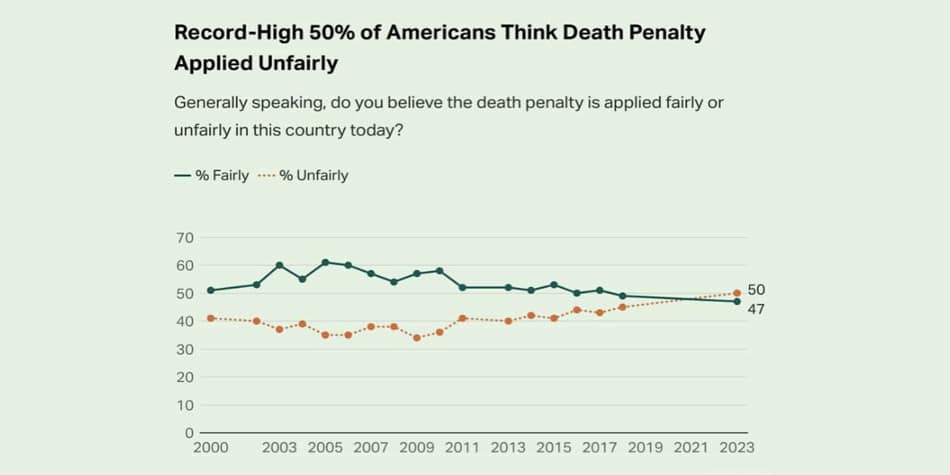
2018 confirms a long-term decline of the death penalty in the US
Statistics
The Death Penalty Information Center’s 2018 End-of-Year report confirms decline despite strong lasting inequalities.
The abolitionist movement keeps gaining ground in the US
In 2018, the abolition movement gained important victories, including political and juridical ones. Many prosecutors have been replaced by reform candidates, including two of the country’s most aggressive supporters of the death penalty in Orange and San Bernardino counties in California. During the gubernatorial elections, anti-death penalty candidates were either reelected (as in Oregon and Pennsylvania where moratoria on death penalty have been ordered) or elected for the first time (as in Colorado where the candidate explicitly advocated against death penalty).
On the side of juridical victories, Washington’s Supreme Court’s decision was decisive. The Court indeed ruled that the death penalty violated the state constitution, arguing in an “arbitrary and racially biased manner”. Thanks to this decision, Washington became the 20th abolitionist state in the US. Juries also exonerated two individuals sentenced to death in California and Florida and commuted the sentences of three others to life in prison in Ohio and Texas.
Public opinion is also slightly changing its position on the death penalty according to an October Gallup poll. The death penalty is now seen as a fair sentence by less than half of Americans, which is the lowest level since 2000 the DCIP’s report points out.
The use of the death penalty remains discriminatory
With 25 executions and 42 death sentences, 2018 is the fourth consecutive year with less than 30 executions and less than 50 death sentences. Despite these figures, the death penalty continues to reveal important social and territorial inequalities. The DPIC describes it as “geographically isolated”: 14 states were responsible for the sentencing, including Texas and Florida where 14 sentences were passed down and only 8 states were responsible for all of the executions in2018, including 13 in Texas.
The DPIC’s report points out that 70% of the people sentenced to death suffer various mental illness, brain damage or even chronic abuse.
Categories
United States






